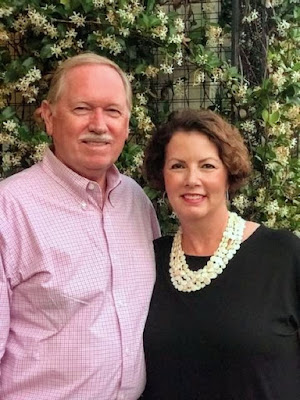We Cannot Survive Without Each Other
We Cannot Survive Without Each Other
When I walk the short distance between my office and the sacristy on a school morning in the spring I have the distinct pleasure of passing by, and thus taking in, the beauty of at least one specimen of just about every type of plant life we enjoy on our beautiful campus. (Thanks, Kay Allen!) Every color of the rainbow is represented (including, currently, the purple of the kale blooming outside the west doors) and the buds, blooms, and foliage vary in size and shape. It seems there’s something new to notice each day, and the ways in which the many living things complement and bring out the best in one another is fascinating to me.
These morning delights are what came to my mind as I read the conclusion of the second chapter of Living Into God’s Dream: Dismantling Racism in America, the book being read by my Sunday School class, the Diocese of Georgia, and much of the Episcopal Church this season of Lent. The author of the second chapter is Lerita Coleman Brown, professor of psychology emerita at Agnes Scott College, and author of more than thirty articles and one edited book on topics ranging from women, work, and aging to stigma, identity, and self-concept. Her contribution to our book, Dissecting Racism: Healing Minds, Cultivating Spirits, focuses on the spiritual life as the place where ongoing issues of racism can best be explored resolved. She writes:
There is something “normal” about diversity. It exists in nature, in wildlife, and the ecosystem cannot sustain itself without a variety of interdependent species. Likewise we as human beings need what each individual offers in our vast world of diverse people, religions, and ways of perceiving the world. We cannot survive without each other. We cannot flourish unless we find ways to look beyond physical appearances to see the magnificent spirits God created. We must connect with “others,” with people who look different from ourselves for completion, for healthy wholeness, for true holiness.
One can see why these thoughts bring to mind and heart my walk through the diverse plant life beauty of our campus in spring! These words also stir in my spirit the truth of my vocation in raising up a generation of children who will understand and respect what I fear too many before them have not noticed or embraced – the reality that we (ALL of us) are made by God for one another, and that we are actually incomplete without a true diversity of relationships, experiences, and perspectives. Personally, I used to think that “not seeing difference” was the most open-minded and Christ-like posture I could adopt, but God has recently sent the right people into my life to teach me otherwise. I now realize, and work hard to remember, that differences are to be seen and celebrated, and that without them I am not whole. So I’m committing myself to noticing and rejoicing in the diversity around me – in the beauty of natural world, and in the physical, intellectual, spiritual, and cultural beauty of everyone I meet. The prospect of my every day being more complete and holy is encouraging and exciting! May I persuade you to join me on the journey? - Pastor Lisa +



Comments
Post a Comment